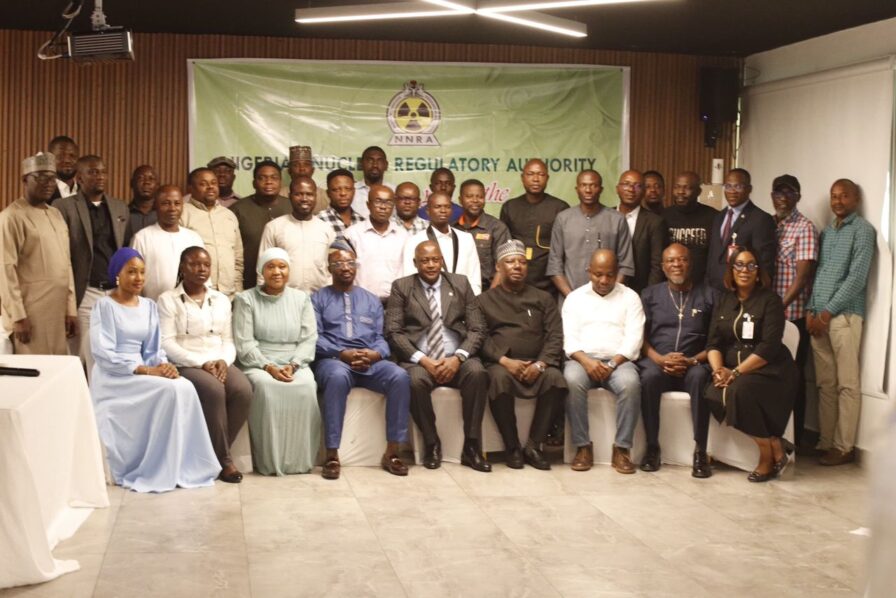
The Nigerian Nuclear Regulatory Authority (NNRA) has reiterated its commitment to ensuring the safety, security and regulatory compliance of nuclear technology applications in the nation’s oil and gas sector.
Speaking at the Second National Workshop on Safety, Security, and Regulatory Requirements for the Use of Nuclear Technology in the Oil and Gas Industry held in Lagos, the Director General/Chief Executive Officer of NNRA, Dr. Yau Idris, identified lapses in the handling of radioactive sources, particularly during transportation, storage, and use at unlicensed well sites.
He noted that many incidents involving unlicensed transporters, undeclared personnel and radioactive sources, such as abandonment in oil wells, pose significant safety risks, while unregulated well sites exacerbate these issues.
According to him, the oil and gas industry accounted for about 90 per cent of high-risk radioactive source imports into Nigeria, used primarily for logging operations. He said since 2001, the NNRA has enforced stricter regulations, leading to better reporting, investigation.and sanctions for incidents involving radioactive materials.
Idris said despite progress, many high-risk radioactive materials with long half-lives remain unaccounted for, a concern that underscores the need for tighter regulatory controls.
“These incidents were not reported prior to 2001 due to a lack of enforcement mechanisms. Today, such cases are investigated and appropriately sanctioned,” he said.
Idris emphasised the critical role of the authority in regulating radiation protection and nuclear safety across industries. He described the workshop as a platform for stakeholders to collaborate on improving the use and management of radioactive sources in Nigeria’s oil and gas industry.
Idris further outlined the NNRA’s framework for achieving its mission, based on five key pillars, which include, Regulations and Guidance, Authorization, Oversight Functions, Emergency Planning and Response, and Ancillary Functions. He said these principles ensure that nuclear safety aligns with international standards and Nigeria’s national interests.
According to him, the NNRA has implemented a Regulatory Authority Information System (RAIS) to enhance the tracking and control of radioactive sources throughout their lifecycle, from importation to disposal.
Idris noted that RAIS has significantly improved the security of radioactive materials, enabling authorities to swiftly identify the location and ownership of sources.
Idris, however, lauded the gazzeting of national regulations as a milestone achievement, recognised by the International Atomic Energy Agency (IAEA). He noted that Nigeria has hosted several regional training programmes for African countries and trained frontline security personnel, including customs and immigration officers, on detecting radioactive sources.
According to him, these efforts have been instrumental in strengthening the physical protection of radioactive sources and enhancing national security. Idris urged stakeholders to continue working together to ensure compliance with evolving technologies and operations in the sector. He emphasised the importance of participatory compliance and knowledge sharing in reducing radiological emergencies and safeguarding public health and the environment.






